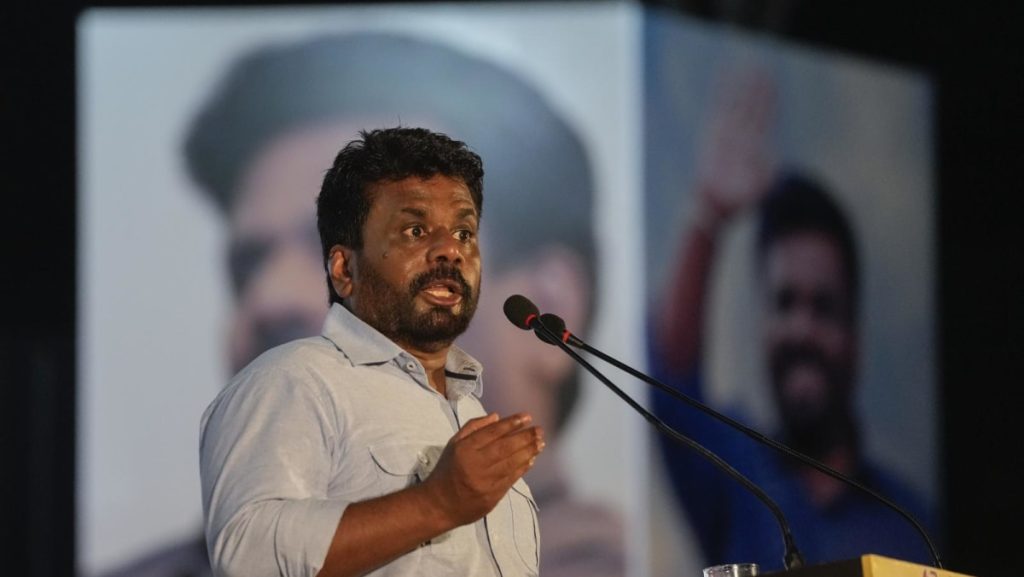Dissanayake, a popular figure in Sri Lankan politics, has softened some of his policies, stating that he believes in an open economy and is not completely against privatization. Despite rumors of nationalizing everything, he reassured farmers that his party will help them improve their dairy operations without taking over cows. His manifesto aims to enhance state-owned enterprises without selling them off. While he has improved relations with New Delhi since anti-India rhetoric in 1987, he is also perceived as being close to China, sparking a competition for influence in the strategically significant Sri Lanka.
The recent election was the first after mass protests on the economy led to the removal of former President Gotabaya Rajapaksa in 2022. Sri Lanka experienced its worst financial crisis in history following its independence in 1948, with the economy seeing a tentative recovery due to an IMF deal. The country is expected to experience growth for the first time in three years and inflation has come down to 0.5% from a crisis high of 70%, offering a glimmer of hope for the millions still struggling in poverty. Dissanayake has pledged to dissolve parliament soon after taking office to seek a fresh mandate for his policies in general elections.
Despite the challenges, Dissanayake’s focus will be on ensuring that Sri Lanka adheres to the IMF program until 2027 to stabilize its economy, rebuild market confidence, repay debts, attract investors, and lift a significant portion of the population out of poverty. This will require strong economic management and strategic decision-making to navigate the complex geopolitical landscape, balancing relations with both India and China, who are vying for influence in the region. Dissanayake’s visit to both New Delhi and Beijing underscored the importance of ensuring Sri Lanka’s sovereignty is not compromised by entangling rivalries.
One of Dissanayake’s key promises is to prevent Sri Lanka from being used as a pawn in the geopolitical rivalry between India and China, pledging that Sri Lankan territory will not be leveraged against any other nation. By improving relations with both countries while safeguarding national interests, Dissanayake aims to maintain Sri Lanka’s sovereignty and autonomy in the face of external pressures. This delicate balancing act will be crucial in protecting the country’s interests while harnessing economic growth and development to uplift its citizens out of poverty.
Dissanayake’s acknowledgment of the smear campaign against his party’s alleged plans to nationalize everything, including cows, highlights the challenges of managing public perception and misinformation in a politically charged environment. By clarifying his stance on policies and maintaining transparency, Dissanayake aims to build trust and credibility with the electorate. This will be essential as he embarks on implementing his agenda to reform state enterprises, address the economic challenges faced by the country, and set Sri Lanka on a path towards stability and growth. Balancing economic imperatives with geopolitical realities, Dissanayake must navigate a complex web of domestic and international factors to steer Sri Lanka towards a brighter future.


